When dozens of energy companies started going bust in 2021, the government knew it had a crisis on its hands. The rise of the energy price cap from £1,277 to £1,971 in April – an increase of nearly £700 – led to not one but two emergency support packages. By the end, £15 billion worth of subsidies and support broadly covered the price rise for Britain’s eight million poorest households. This, it now seems, is just the start of what’s needed to get them through winter.
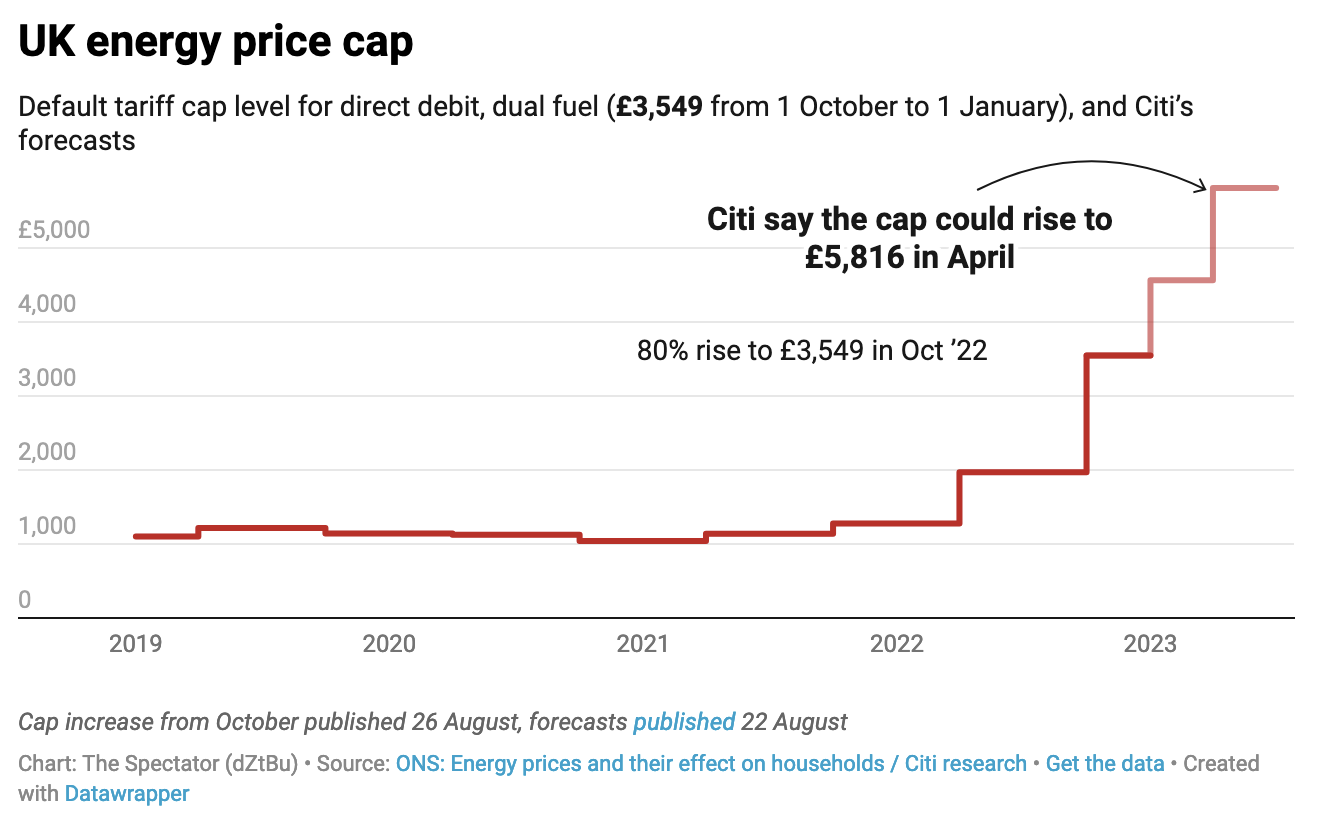
This morning, Ofgem has announced the cap will rise from £1,971 to £3,549: an 80 per cent increase. This exceeds the roughly £1,200 of support the poorest are already receiving and raises two questions: just how much higher might the price cap rise this winter and what will the government’s strategy be to provide relief?
Boris Johnson has made clear that the second question is one for his successor, which will make these next ten days before the new leader is announced deeply uncomfortable. Were Rishi Sunak to enter No. 10 in September, we’d have a pretty good sense of what a support package would look like, given his time as chancellor saw him implement a £9 billion and then upgraded £15 billion support package which came in the form of direct subsidies, including a universal energy bill credit of £400 for every household. But the more likely person to enter Downing Street is Liz Truss and she’s hinted at doing things differently: possibly looking at a combination of tax cuts, levy suspensions and subsidies, rather than putting full emphasis on direct cash top-ups.
Either way, an emergency support package is likely to be one of the first things announced by the new prime minister. When Sunak brought in his in February, he noted that ‘for me to stand here and pretend we don’t have to adjust to paying higher prices would be wrong and dishonest.’ He was right in the sense that governments cannot control global energy prices; it would be misleading and ultimately fruitless to pretend otherwise. But it also became clear that this was not, as originally intended, the moment to start weaning people off Covid-style support: a price hike of 54 per cent was so steep that it became clear very quickly that this money simply couldn’t be found by millions of households. Energy prices aren’t just becoming unaffordable for the lowest paid or for people on modest incomes but for those who in normal times would have no problem budgeting.
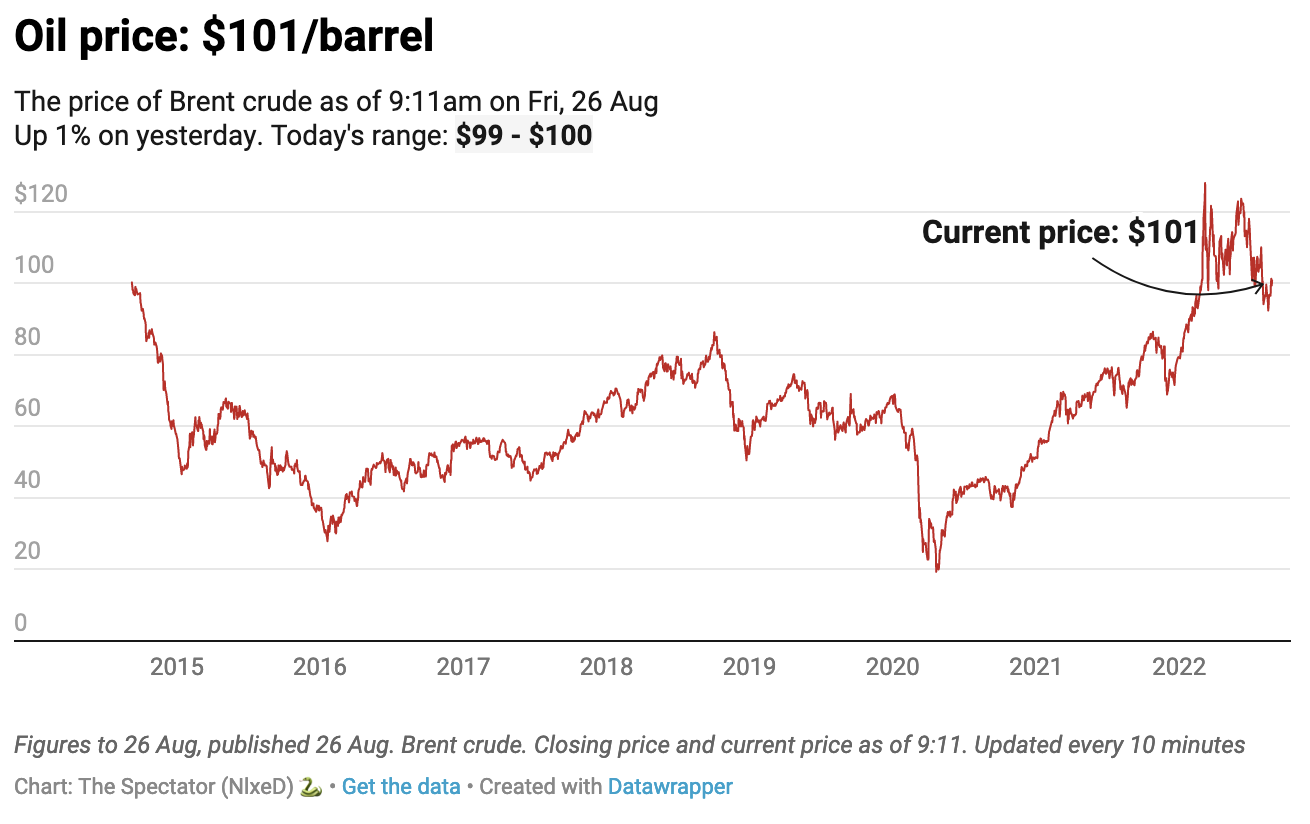
It’s going to get worse. Starting in January, the price cap will be updated every three months instead of every six months to better reflect the wholesale price of energy. This was intended to get bills down quicker for consumers, with positive signs in the oil market that prices may be falling. But it already appears that the decision may be backfiring, as analysists suggest bills going up further in winter and early spring next year, possibly even reaching £6,000. Another industry analyst, Cornwall Insights, suggests bills could hit £6,600.
The biggest unknown factor is Vladimir Putin’s energy games. Having already started to reduce gas supplies to Europe this summer – often under the guise of pipeline maintenance – it’s near-impossible to predict just how much Moscow will limit exports this winter, driving prices up even further. While Britain has successfully severed any dependence on Russian energy, it’s still dependent on Europe’s energy market. A drop in supply elsewhere drives up demand across the board.
Whether the best or worst-case scenarios come to pass, we almost certainly have not reached the peak of the energy price cap. We have an expensive winter ahead of us; and potentially a very painful one, too.
Got something to add? Join the discussion and comment below.
Get 10 issues for just $10
Subscribe to The Spectator Australia today for the next 10 magazine issues, plus full online access, for just $10.


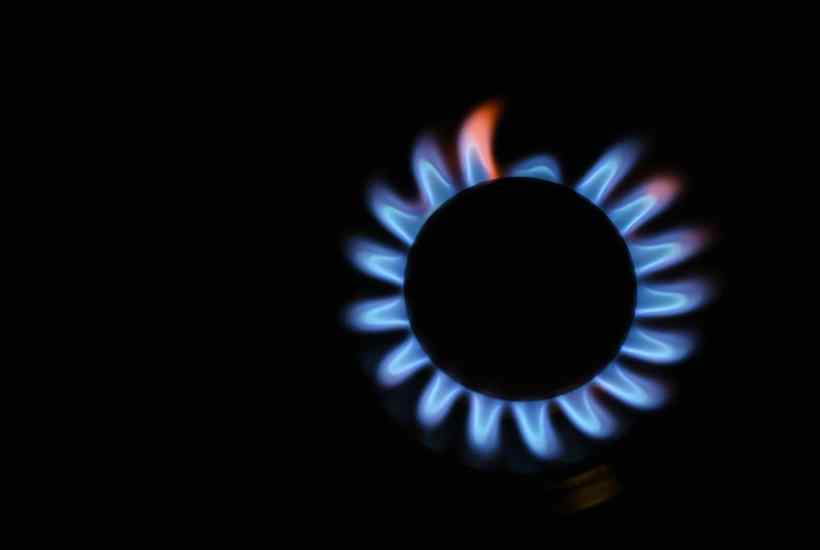
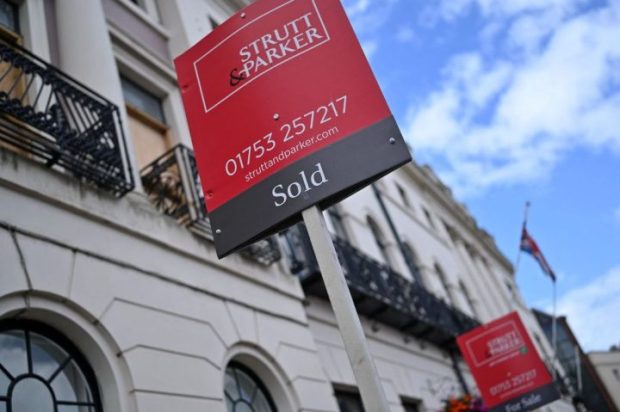
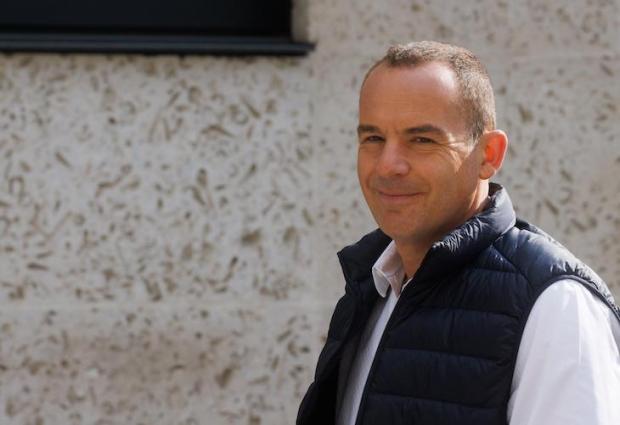
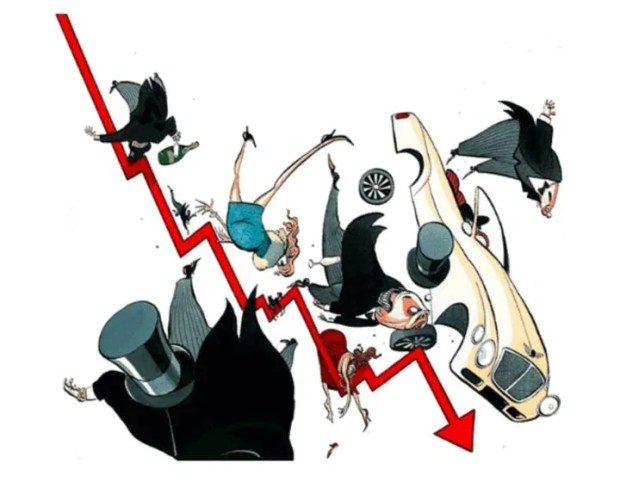

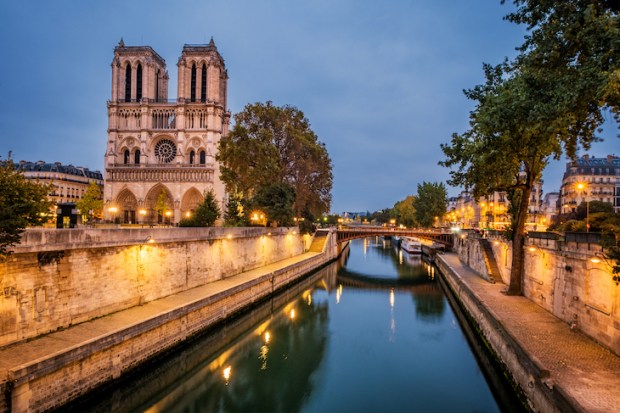
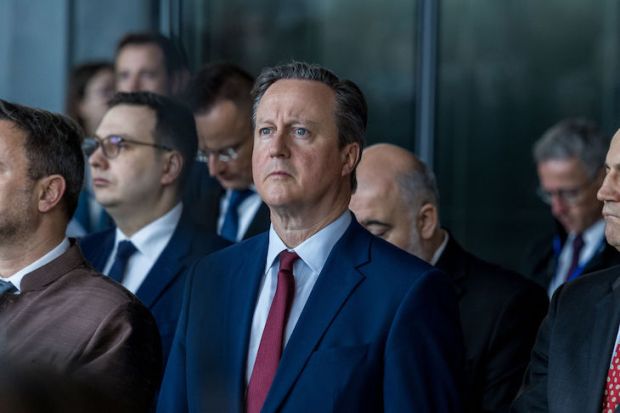












Comments
Don't miss out
Join the conversation with other Spectator Australia readers. Subscribe to leave a comment.
SUBSCRIBEAlready a subscriber? Log in